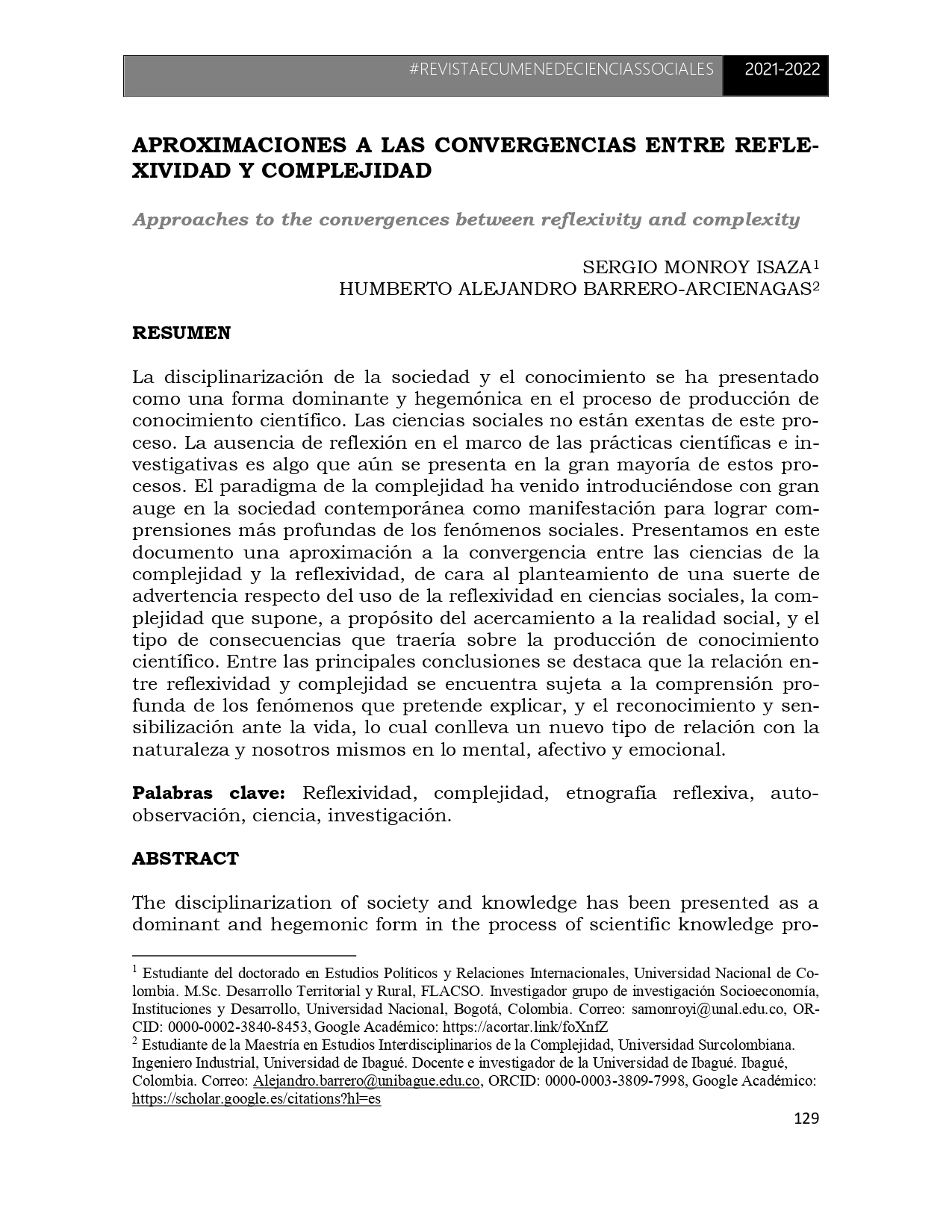Abstract
The disciplinarization of society and knowledge has been presented as a dominant and hegemonic form in the process of scientific knowledge production. The social sciences are not exempt from this process. The absence of reflection in the framework of scientific and research practices is still present in most of these processes. The paradigm of complexity has been introduced with great boom in contemporary society as a manifestation to achieve a deeper understanding of social phenomena. In this paper we present an approach to the convergence between the sciences of complexi-ty and reflexivity, in order to raise a kind of warning regarding the use of reflexivity in social sciences, the complexity it implies, in terms of the ap-proach to social reality, and the type of consequences it would have on the production of scientific knowledge. Among the main conclusions, it stands out that the recognition and sensibilization to life, which entails a new type of relationship with nature and us in the mental, affective and emotional spheres.

This work is licensed under a Creative Commons Attribution-NonCommercial-ShareAlike 4.0 International License.
Copyright (c) 2022 Revista Ecúmene de Ciencias Sociales

